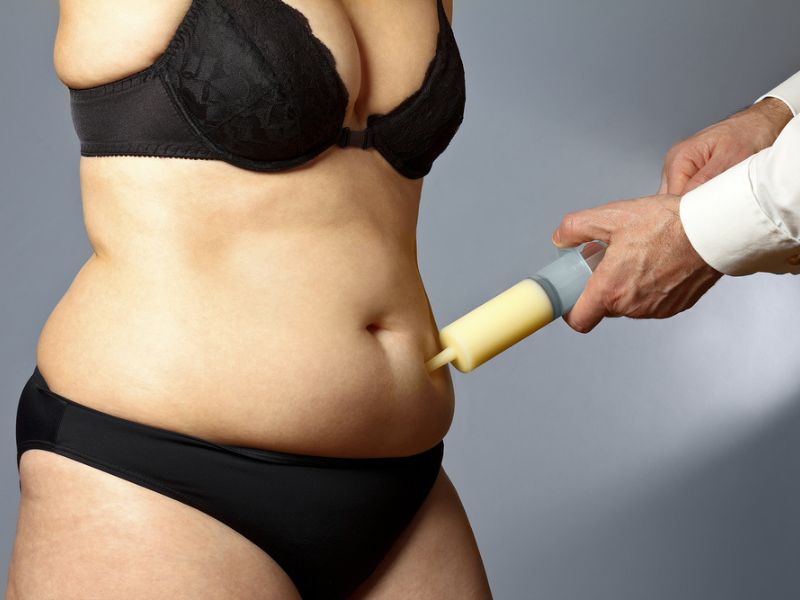It’s become an automatic reflex for many people to constantly tighten their abs to achieve good posture and a good figure because “suck in your stomach” is so common.
Experts say chronic stomach gripping can negatively affect health, including less efficient breathing, injuries to the neck and back, and pelvic afflictions.
In addition to hourglass syndrome, some TikTok users have already experienced dimpling at the base of their lower ribs where overused upper abdominal muscles appear to have tightened.

Image Credit: Shutterstock/Nikolas_jkd
Physical therapist Julie Wiebe called it a “fallout” from continuously sucking in your stomach than a syndrome but said the habit has real health consequences.
Wiebe told TODAY, “We’ve been sold a bill of goods on this as women. Those in their 30s are the first generation to have grown up with the core instilled in them that gripping all the time is unhealthy.”
Hourglass Syndrome: What Is It?
Adam Browning, a chiropractor with the Cleveland Clinic’s Medina Hospital in Ohio, explained it is caused by prolonged stomach-gripping or too many repetitions ” to get rid of any pooch.” Browning said, “We want to be perceived as fit and healthy, so we want a flat stomach.”
Stomach Sucking: What Happens?
Browning said stomach gripping involves upper abdominal muscles. He noted that sucking everything into the rib cage is more intense than crunching. Consequently, Browning called the diaphragm the most crucial breathing muscle instead of moving down. Wiebe added that stomach gripping also puts pressure on your pelvic structures.

Image Credit: Shutterstock/Agenturfotografin
What Are The Signs Of Hourglass Syndrome?
Browning noted that chronic stomach grippers have highly developed muscles in their upper rectus abdominis or upper abs. Lower abdominal muscles may be softer, and you may have difficulty contracting them. The skin may dimple at the base of the lower ribs.
Is There A Way To Stop Stomach Gripping?
Experts suggest acknowledging you are sucking in your stomach and believing there is another way.
Do belly breathing exercises. Squeeze your stomach tight and then soften it to feel the difference in breath quality. Browning says it’s normal for a belly to come forward because the spine has natural curves.